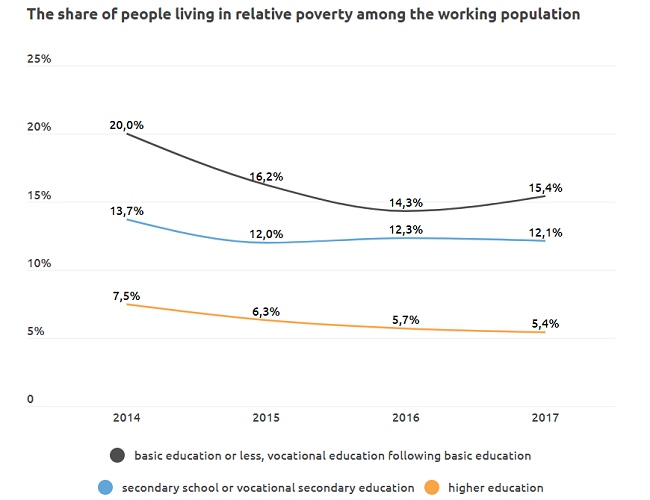Analytics, Banks, Direct Speech, Financial Services, Wages
International Internet Magazine. Baltic States news & analytics
Wednesday, 08.05.2024, 06:13
Slower growth in wages may prove temporary
 Print version
Print version |
|---|
Data from Statistics Estonia show that the average gross monthly wage was up 6.4% over the year in the second quarter of 2018, which is a slower rate of growth than the 7.7% in the previous quarter. The shortage of available labour kept upwards pressure on wages high, and the slower wage growth can be at least partly explained by the impact of the tax reform, which changed how holiday pay is paid out and so allowed employers to restrain the growth in gross wages a little as employees received more in their pay packets.
The new tax system made it less favourable for employees to receive holiday pay during the month in advance of their holiday, as the temporary rise in their pay would lower their tax-free allowance. The data indicate that employers agreed more frequently than last year to make all monthly payments the same size. This change had a particularly notable impact in the slower wage growth in education. Wage growth may be faster than expected in the next quarter though, as people receive more in wages during the holiday months than they did last year.
Wage inequality and in-work poverty have declined in Estonia in recent years. This has been helped by the rapid rise in the minimum wage over several years and by rises in family benefits. The risk of falling into poverty is substantially smaller for those in work than it is for the non-working. The risk of poverty is higher for single parents and those with low work intensity, and it declines with higher levels of education.









 «The Baltic Course» Is Sold and Stays in Business!
«The Baltic Course» Is Sold and Stays in Business!

